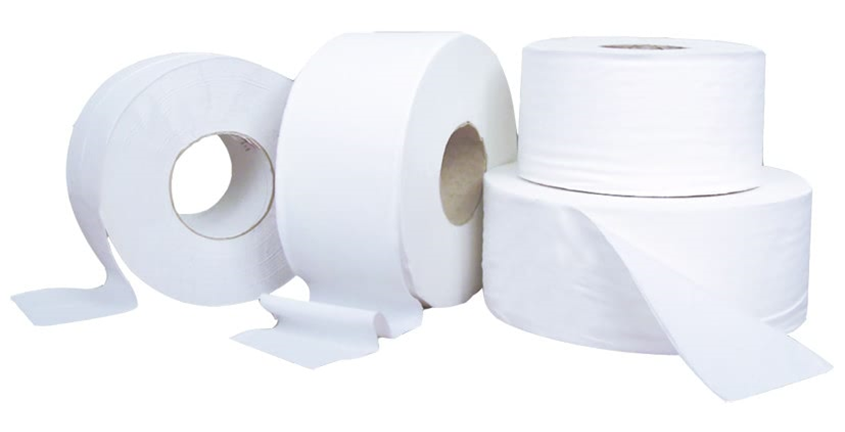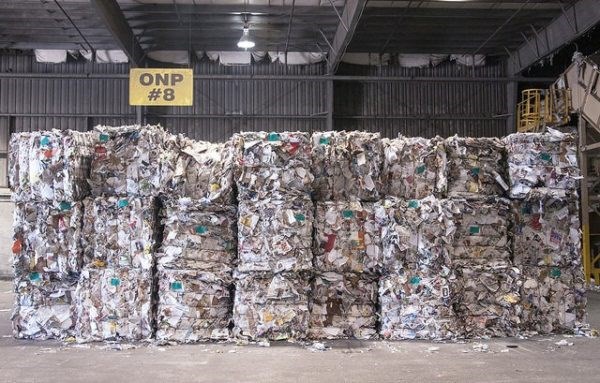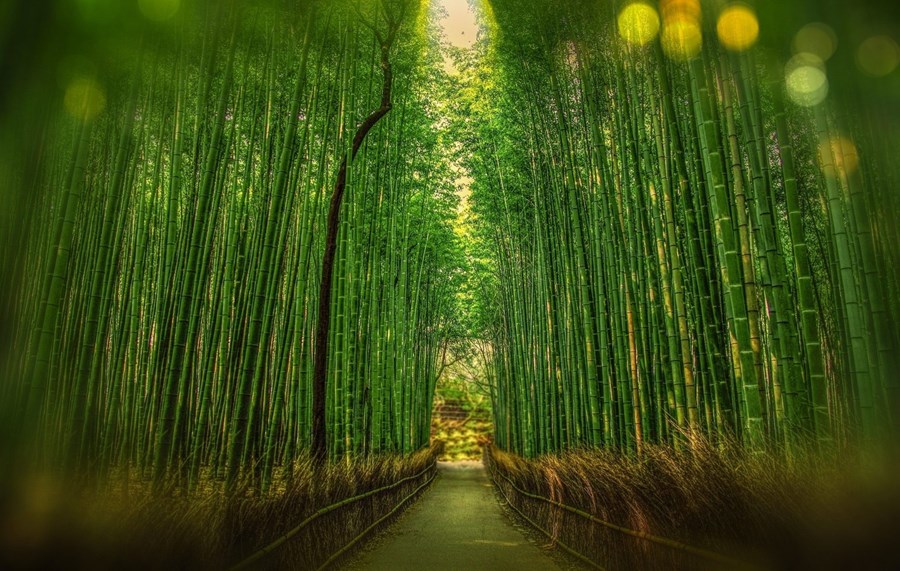Recycled vs Pure vs Bamboo Paper – Which is the best?
Recycled vs Pure vs Bamboo Paper – Which is the best?

With so many companies claiming to have the most environmentally sound paper solution from recycled, to recyclable, to green and environmentally friendly – it is really difficult to determine which is the right solution for you and importantly for the environment?
While some recycled products do live up to their name, many of them especially in the paper industry, do not live up to the hype. There has been a significant rise in recycled paper products, and paper made from virgin fibres (fibres that have not been recycled) are now seen as wasteful, but in most cases this is exactly the opposite.
Most of the most popular paper brands are not popular due to the superiority of product, but because they are transparent and responsible about what they stand for, where their fibres come from, how they treat their people. This means that in todays' consumer market, fancy packaging and some branding buzzwords just aren’t enough to make your brand successful, you have to have deep ethics, mean what you say and undertake business with great integrity.
Recycled – What does this actually mean in the paper industry?
Using recycled paper products – like toilet roll sounds good doesn’t it? Well no not really, because when you think about the details it just doesn’t add up. When recycling paper, the fibres can only be reused up to 7 times, depending on the paper grade (1) – it is also impossible to know how many times that paper has been reused. Overused paper fibres can produce a paper that is inconsistent in quality, low quality and poor performance which makes using them unpleasant. But also importantly, for companies like Astral Hygiene, we really value consistency in our paper products, so an inconsistent product using recycled products would be immediately discontinued here. This is because our customers demand high quality products from us, so if we are unable to supply this, we would lose customers.


The paper industry, on average uses around 40% of forestry (2), however trees are a renewable resource and recycling paper reduces the demand for trees, resulting in fewer trees being planted. Recycled fibers are also shorter in length than virgin fibres which makes the end paper product weaker and less absorbant. Recycled paper is full of glue, which means it clogs toilets and doesn’t retain ink as well, meaning patterns don’t show up as intended.
If we think about the process of making recycled toilet paper, it isn’t very hygienic either! Accoring to research by Laval University, the concentration of bacteria in tested recycled paper was between 100 to 1000 fold higher than the virgin wood pulp brand (3). The amounts of bacteria found would have little effect on healthy people, those people with young immune systems like children, or those with weakened immune systems would be at risk of becoming unwell – as a result of a paper product!
Interestingly, an additional research study found that recycled paper mills have an issue with bacterial slime (4). Since recycled paper contains starches which glue or bind the ingredients, it serves as the perfect breeding ground for nasty germs and bacteria. Some strains found in the study included bacteria associated with food poisoning!
There is absolutely no credible rules and regulations around what is to go in to recycled paper – so there is no way to govern how much actual paper goes in to your recycled paper. If a brands packaging doesn’t identify the paper product as 100% recycled, it could have been recovered using energy generated from coal. Because it is contribution to CO2 emissions and using excess energy, recycled paper that does not meet the 100% mark means it may as well have not been recycled at all.
So Virgin vs recycled, I think its clear that there is a lot of smoke and mirrors about recycled paper, is the energy being used to create this recycled paper renewable, what is the recycled paper made of, is it going to clog my toilet, am I going to contract a nasty infection from this paper? Is using recycled going to give me a stronger paper, does using recycled paper contribute to sustainable forests………there are no good answers to any of these questions.
I think we can agree, that out of recycled paper, and Virgin….. Virgin is definitely a better option.
So what about Bamboo toilet roll…….
In writing this article, I was initially very excited about the prospect of Bamboo Toilet Roll, because there are loads of advantages to it. Bamboo is the worlds fastest growing plant and although it does create really strong natural fibres, it does create a really durable and strong paper product. Bamboo is actually a grass, so it just regrows after it is cut, so doesn’t require any planting or chemicals to accelerate growth. Bamboo reaches maturity within 7 years, so can be harvested every year after this. All this information is a massive environmental winner. It’s exciting…..right?

The environmental impact in terms of energy and resources to harvest and produce is really unclear at this stage, due to the newness of the product, so we don’t actually know what the carbon impact will be? Transportation is where Bamboo truly falls down, currently all Bamboo Toilet Rolls are imported from China, meaning the carbon footprint of this product in terms of travel is much higher than the EU and UK produced paper, which we currently stock at Astral. Due to the unknowns in terms of Carbon production produced when harvesting, we currently don’t know which is the best option in terms of carbon produced during manufacture. We certainly do know that Virgin Pure is currently a better option in terms of transportation carbon production due to ours being produced in the UK.


If we could produce Bamboo in Europe (which is possible), this would lessen the transportation carbon footprint, however, it would not make it the same as our current Virgin paper which is produced in the UK, but it would help to make it a consideration for us.
However, there is a bigger picture in terms of climate change. How does replacing trees with bamboo plants impact the fixing carbon from the atmosphere? Which has the highest carbon storage, trees or bamboo? In essence trees are better at digesting carbon, but to break it down a little.
A new study in the Research Journal Forest Ecology and Management sheds lights on the mechanisms behind the loss of carbon fixation of subtropical forests (5). The replacement of trees by bamboos produces a cascade effect from the vegetation to the soil, implying that a disturbed forest is not delivering the same ecological service as a non-degreaded forest (6).
So in essence, Bamboo doesn't deal as well with Carbon as Trees do - 50% less effective in fact. So if we replaced all trees with bamboo, our planet would warm even more quickly than it is currently, and our current climate crisis would worsen!
With Bamboo Forests being harvested every year, the wildlife living in there would be disturbed at best or killed by machinery entering the forest to chop it down - so it's worse than our current situation!
Many promoters of Virgin, Recycled and Bamboo Paper Products will say that their products are the best, but in writing this blog I have tried to cut through the propaganda, ignore the ridiculous statistics and just present the facts that I know to be true.
As the landscape changes, and one product becomes better than the one we currently supply which is Virgin Pulp we will change our view. I believe our EU & UK manufactured Virgin Pulp is better ecologically due to British & EU Production from sustainable forests, high consistent quality, and is a hygienic solution.
But our decisions are always informed, and they will always remain that way. I hope this has provided some clarity on a very confusing issue.
1http://www.nytimes.com/2010/12/21/science/21qna.html
2http://www.worldwildlife.org/industries/pulp-and-paper
3 http://www.cleanlink.com/news/article/Study-Finds-Bacteria-in-Unused-Paper-Towels--13862
4 https://www.ncbi.nlm.nih.gov/pubmed/20544256
5 https://phys.org/news/2017-06-trees-bamboos-halves-carbon-storage.html
6 http://tomorrows.kitchen/articles/bamboo-durability-research

Comments
Post a Comment